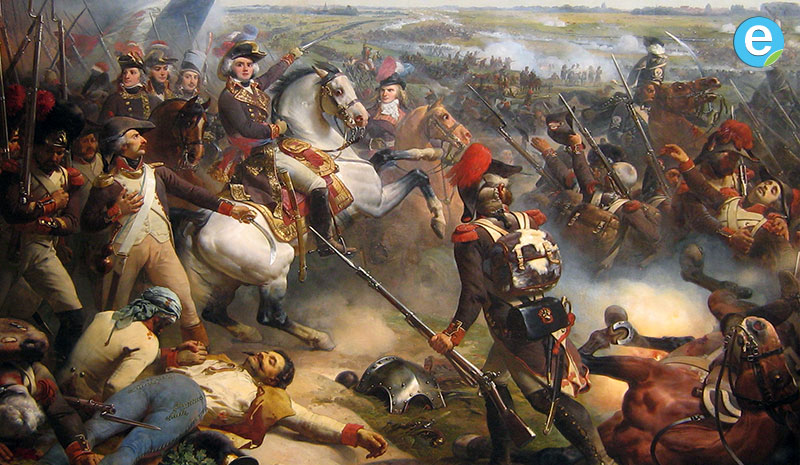
French Revolution was a consequence of the crisis of French absolutism. The causes of the revolution were the deep contradictions between traders and industrialists, the peasantry, workers of factories and the prevailing privileged people ( the nobility and the clergy).
Dissatisfaction arose from the system of civil inequality and grades of privileges used by the nobility and the clergy. The French ideology, reflecting the anti-feudal aspirations of the French bourgeoisie and the masses, was the French Enlightenment. Even in the middle of the 18th century, the efforts of philosophers, writers, economists, historians appeared a large number of works directed against feudal-absolutist policy. Voltaire, Montesquieu, Russo, Diderot, d’Alembert, advocated freedom and civil equality.
Beginning of the Revolution
The Storming of the Bastille on July 14, 1789, was the beginning of a revolution that embraced the whole country. The people destroyed the old authorities. The National Guards became the armed forces of the revolution. The constituent assembly in early August 1789 worked out a bill that abolished class preferences, feudal rights, and church tithe and proclaimed the equality of all before the law in the payment of state taxes.
Calculate the cost of essay
In August 1789, the meeting adopted the Declaration of Rights of a citizen and a person, which proclaimed the principles of national sovereignty, equality of all citizens before the law, human right to security and resistance to oppression, freedom of speech, press and conscience, “sacred and inviolable” right of private property.
In 1791, the Legislative Assembly, elected in accordance with the Constitution, began its work. The right part of the Legislative Assembly was made up of felines – large financiers, traders, landowners, industrialists who were interested in preserving the monarchy and the Constitution of 1791.
The inability of the Legislative Assembly and the government to lead the country’s defense in 1792 led to the uprising organized by the Paris Commune, created from the Parisian sections of the Jacobins. Louis XVI was imprisoned, the king’s ministers were released, and the Provisional Executive Committee was set up. The separation of active and passive citizens has been abolished, and elections to the National Convention have been appointed for men on the basis of universal suffrage.
Results of the Revolution
The National Convention, convened in 1792, adopted a decree on the abolition of royal power. France was proclaimed a republic. On the eve of 20 September, the French revolutionary army near the town of Valmy defeated the Prussian troops and forced them to retreat. By the beginning of 1793, the interventionists were expelled beyond the borders of France.
One of the acutest issues in these discussions was the question of punishing Louis XVI. The king was transferred to the court of the Convention, who found him guilty of treason. The French king was executed. The revolution abolished the feudal-absolutist monarchy and established a republican system in the country. The state was headed by representatives of the bourgeoisie. However, the revolution did not solve the problem of the peasantry, the largest part of the population.
What customers say about our service

